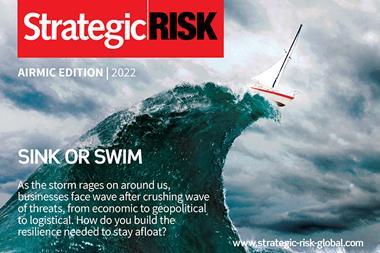Country filters present data related to businesses’ climate risk and ESG interests
The 2022 FM Global Resilience Index has been released, including 15 economic, risk quality, and supply chain measures that offer executives insights into the vulnerabilities of a country’s business environment and, conversely, its resilience.
Two new index measures for 2022, climate risk exposure and climate risk quality, help businesses intensify their focus on emerging environmental perils. The former measure reflects such threats as severe floods and wind storms, while the latter reflects building codes, code enforcement, and facilities improvements.
The UK, for instance, is well prepared to address climate-related risks: While ranked 111th for Climate Risk Exposure, the country sits in 17th place for Climate Risk Quality.
Conversely, as businesses struggle to manage supply chain strains, this year’s index reveals manufacturing nations that rank low for both climate risk exposure and climate risk quality including China region 1 (East) and region 2 (Southwest and some coastal locations), India and Vietnam.
Notably, the Republic of Korea’s climate risk quality rose in rank for this measure since last year, climbing 36 places, from 89 to 53, as the country demonstrated its commitment by releasing national flood maps in 2021.
Climate risk and ESG-related enhancements
The index also now includes country filters that present specific index data related directly to businesses’ climate risk and Environmental, Social and Governance (ESG) interests, as organisations strive to become more transparent in their commitments and values.
The two filters enable index users to focus exclusively on the climate risk- and ESG-related measures to better understand inherent country risks and identify opportunities through these lenses.
It also includes two new measures: health expenditure and supply chain timeliness and contains improved measures for cyber risk and energy intensity, broadened from fossil fuels to now include renewable and clean energy sources.
“Building resilience to achieve long-term sustainable outcomes is critical to business success, whether adjusting to war, navigating a pandemic, dealing with the threat of a changing climate, or meeting ESG demands,” said Pentti Tofte, staff senior vice president, data analytics, FM Global.
“The 2022 FM Global Resilience Index is designed to support senior executives with preparing for—and adapting to—a dynamic risk landscape and to building business resilience responsibly.”




















No comments yet